Connecting the Sustainable Activities of the Entire Textile Industry: BLUE CHAIN®
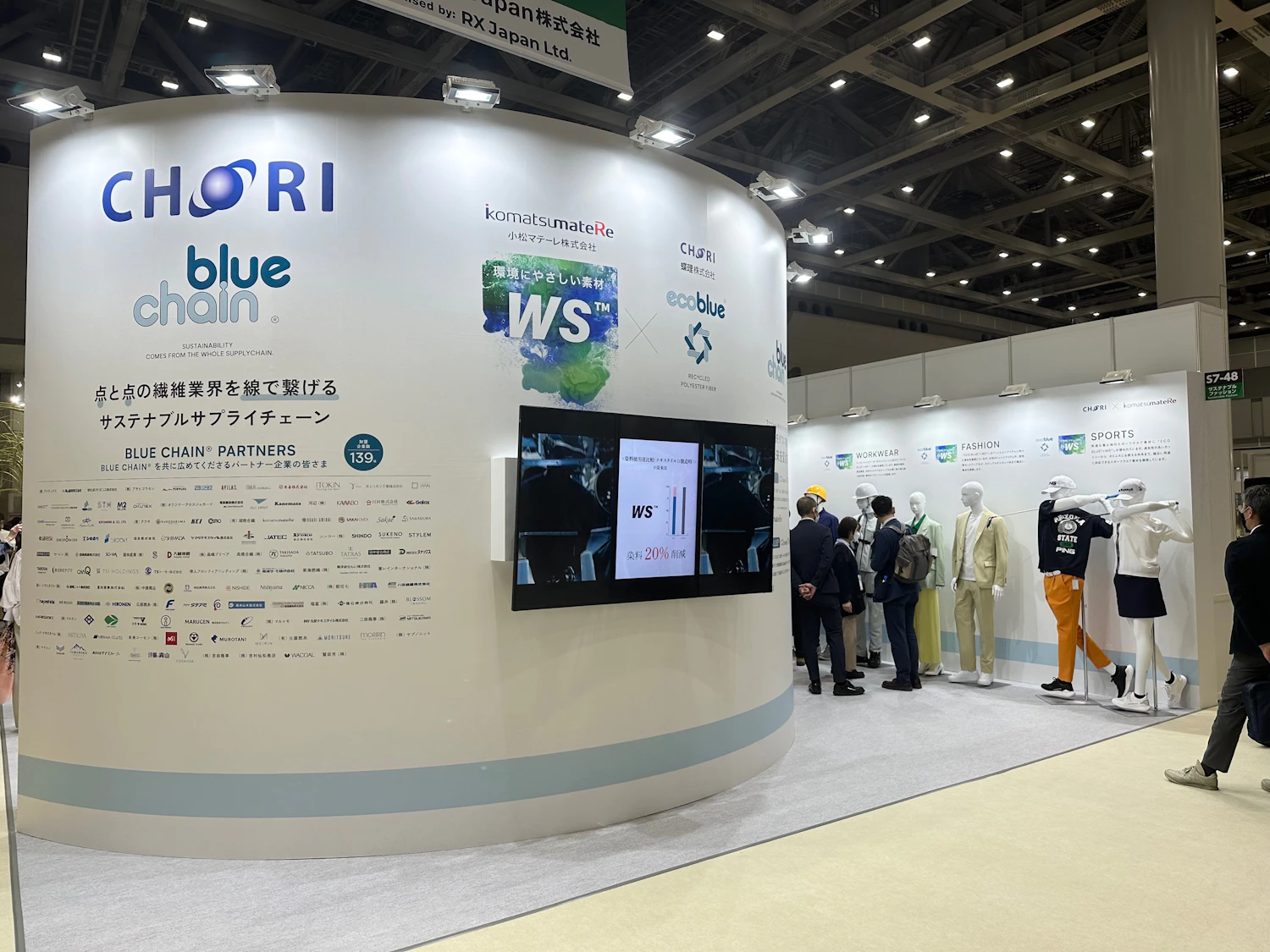
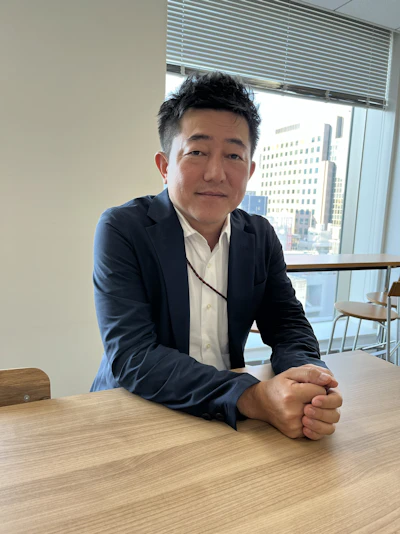
General Manager, Textile Raw Materials Division
Joined the company in 1998.
In the Textile Raw Materials Division, he sells over 50,000 tons annually of polyester and nylon yarns to domestic and overseas markets.
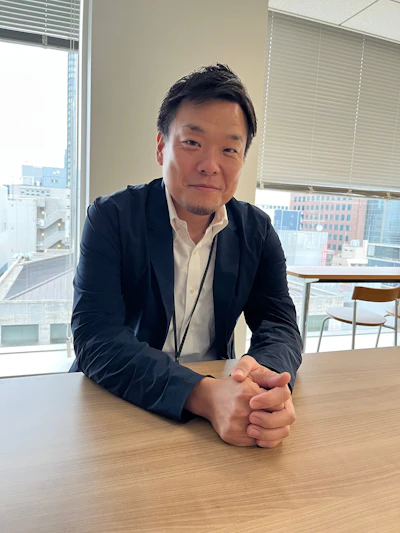
Section Chief of the First Section, Textile Raw Materials Division
Joined the company in 2007.
In the First Section, he mainly focuses on the sales and development of fibers for knitwear.
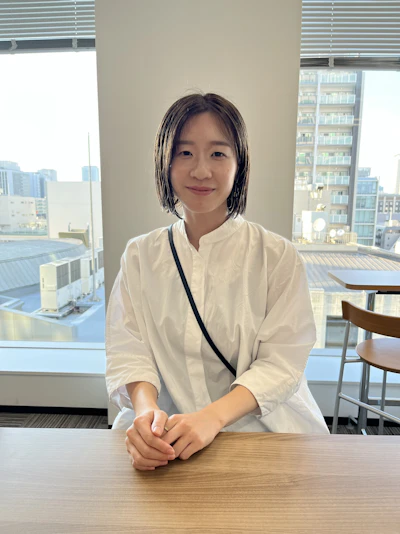
First Section, Textile Raw Materials Division
Joined the company in 2016.
Primarily responsible for the promotion of the BLUE CHAIN® project.
Your company has been around for over 160 years, can you tell us about its history?
Currently, we operate as a hybrid specialized trading company, engaging in textile, chemical, and machinery businesses, offering high-value-added products globally.
This article is for members only.
Please register to read the rest of the article.
- Read members-only articles
and use text-to-speech. - Unlimited article favourites
and browsing history. - Attend members-only events.
- Get the latest information
with our email newsletter.
RELATED ARTICLES
Consent to Privacy Policy
Handling of Personal Information Related to fashion tech news
ZOZO NEXT, Inc. (hereinafter referred to as the "Company") establishes this Privacy Policy (hereinafter referred to as the "Policy") regarding the protection of personal information obtained from all users (hereinafter referred to as "Customers") in connection with the provision or operation of fashion tech news (hereinafter referred to as the "Service").
The Company shall acquire and manage personal information appropriately in accordance with this Policy. All personal information obtained by the Company through the Service shall be obtained based on the Customer's own intent.
Article 1: Categories of Personal Information Collected
1. Information related to logging into and using the Service
- Email address and password for registering for and using the Service
- Name, telephone number, postal code, and delivery address registered as account information
- Account ID used to log in to the Service
- Browsing history, purchase history, and other usage history of the Service
- Information necessary for the execution of transactions conducted by Customers through the Service, and information related to the details of such transactions
- Credit card information, bank account information, electronic money, payment collection services, cash-on-delivery information, and other information related to payments and payment methods
- Information related to inquiries, requests, or other communications from Customers to the Company
- Identification documents required for identity verification pursuant to legal requirements (including driver's licenses, health insurance cards, copies of certificates of residence, etc.) and information contained in such documents
- Other information that Customers voluntarily enter themselves when using the Service
2. Information related to devices used by Customers and information obtained through cookies, etc.
Please note that, with respect to Customers who have registered to use the Service, information obtained prior to registration may also be acquired and linked to the Customer's account.
- Information for identifying communication devices
- Operating system information of communication devices
- Information related to internet connections
- Location information
- Referrer information
- IP address information
- URLs accessed and timestamp information related to the date and time of access
- Information related to the use of the Service
- Advertising identifier information assigned to each Customer's device
3. Information related to events provided by the Company
- Information entered by Customers at the time of application for or participation in events provided by the Company (including, but not limited to, name, email address, gender, and age)
Article 2: Purposes of Use of Personal Information
The Company uses the personal information described in Article 1 for the following purposes, based on the Customer's consent, performance of a contract, or the Company's legitimate interests.
1. Login to and Provision of the Service
- To enable Customers to log in to the Service
- To manage Customers who use the Service
- To provide and operate services suitable for Customers (including, but not limited to, the sale and purchase of paid content or products, shipment of products, billing of service fees, handling of inquiries, notifications necessary for the operation of the Service, and automatic input of registration information)
- To establish and perform transactions between Customers and the Company Group, and for other uses of the Service by Customers
- To measure access to the Service and ensure its smooth operation
- To contact Customers who have withdrawn from the Service and to respond to various inquiries
- To prevent and respond to fraudulent or other improper activities
- To contact Customers regarding services or projects implemented by the Company Group
Please note that, in order for Customers to use the Service, it is necessary for Customers to provide their personal information for use by the Company for the purposes stated above. If Customers do not consent to the use of their personal information for these purposes, the Company may be unable to provide the Service.
2. Use for Advertising and Marketing Purposes
- To conduct advertising, promotion, and other marketing activities related to the Service
- To distribute email newsletters
- To send direct mail
- To conduct campaigns, prize promotions, and surveys
- To analyze Customers' usage of the Service on the Service or on third-party media and, based on such analysis, to distribute notices, advertisements, and implement other marketing measures by the Company or third parties in accordance with Customers' interests and preferences
- To link and collate personal information and related information obtained by the Company from third parties with personal information held by the Company about Customers, and to distribute advertisements or notices from the Company or third parties to Customers on the Service
- To otherwise conduct solicitation, advertising, or other marketing measures related to the Service on the Service or on third-party media
3. Use for Product Development and Research
- To investigate and analyze marketing data
- To improve the quality of the Service
- To develop new services or products of the Company Group
- To conduct research activities carried out by the Company in cooperation with universities or research institutions (including, but not limited to, publication in academic papers and research presentations)
4. Use for Events Provided by the Company
- To provide and operate events
- To improve events provided by the Company (including research, analysis, and preparation of statistical materials, etc.)
- To respond to various inquiries from Customers
- To prevent and respond to fraudulent or other improper activities
- To research or develop new services or products of the Company Group
Article 3: Provision of Personal Information to Third Parties
The Company will not provide personal information obtained to any third party without the Customer's consent, except where required by applicable laws and regulations.
However, based on the Customer's consent to this Policy, the Company may provide personal information, to the extent necessary, to the third parties listed below.
Customers Located in Japan
- Where personal information is provided to service providers that offer services related to analysis, advertising distribution, or similar activities, for the purpose of utilizing such information for marketing measures and analysis of usage status
- Where personal information is provided to universities or other institutions or organizations engaged in academic research, or to individuals affiliated with such institutions or organizations, for academic research purposes
- Where personal information is provided to service providers that offer services for the prevention of fraudulent or unauthorized use in connection with the Service
- Where personal information is provided to service providers that offer analysis services or call center services, for the purpose of analyzing inquiry information received from Customers and utilizing the results of such analysis to improve the quality of responses to Customer inquiries
- Where personal information is provided to service providers that offer services necessary for the provision of the Service or for improving the quality of the Service
- Where it is necessary for the consideration or development of new services
- Where the cases set forth in Article 6 apply
Customers Located in an EEA Member State or the United Kingdom
- Where personal information is provided to service providers that offer services related to analysis, advertising distribution, or similar activities, for the purpose of utilizing such information for marketing measures and analysis of usage status
- Where personal information is provided to universities or other institutions or organizations engaged in academic research, or to individuals affiliated with such institutions or organizations, for academic research purposes
- Where personal information is provided to service providers that offer services for the prevention of fraudulent or unauthorized use in connection with the Service
- Where personal information is provided to service providers that offer analysis services or call center services, for the purpose of analyzing inquiry information received from Customers and utilizing the results of such analysis to improve the quality of responses to Customer inquiries
- Where personal information is provided to service providers that offer services necessary for the provision of the Service or for improving the quality of the Service
- Where the cases set forth in Article 6 apply
Article 4: Outsourcing of the Handling of Personal Information
The Company may outsource all or part of the handling of personal information it has obtained, after exercising necessary and appropriate supervision over the outsourcing contractors.
In addition, when the Company outsources the handling of personal information to contractors located in foreign countries, the Company will implement appropriate security control measures after understanding the personal information protection systems of the relevant countries.
Article 5: Joint Use of Personal Information
The Company will jointly use personal information with its group companies as follows:
1. Items of personal information to be jointly used
The "Categories of Personal Information Collected" described in Article 1
2. Scope of parties jointly using the personal information
The Company's group companies
Please refer here for details of the Company's group companies. However, with respect to overseas group companies, this Policy shall apply only to the extent that it does not conflict with applicable local laws and regulations.
3. Purposes of use by the joint users
The purposes of use described in Article 2
4. Party responsible for the management of the jointly used personal information
ZOZO, Inc.
Article 6: Provision of Personal Information to Third Parties Located in Foreign Countries
The Company may, to the extent necessary for providing the Service, provide Customers' personal information to payment processing service providers located outside Japan (or, for Customers residing within the EU, outside the EU) as specified below. The recipient countries may include countries where the level of protection of personal information is lower than that required under the laws and regulations applicable in the Customer's country of residence.
When providing Customers' personal information to such countries, the Company will implement necessary measures for the protection of personal information, such as entering into Standard Contractual Clauses. If Customers wish to obtain copies of such Standard Contractual Clauses or further detailed information, please contact the inquiry desk specified in Article 16.
1. Name of the foreign country where the recipient third party is located
United States of America
2. Information regarding personal information protection systems, etc.
Personal information protection system of the recipient country
United States of America: https://www.ppc.go.jp/files/pdf/USA_report.pdf
The recipient implements measures that are consistent with the eight principles set forth in the OECD Privacy Guidelines.
Article 7: Retention Period of Personal Information
The Company will retain Customers' personal information for the period necessary to achieve the purposes of use stipulated in this Policy.
In determining the retention period of personal information, the Company takes into account the following criteria: (i) whether a continuous relationship with the Customer is maintained; (ii) whether the Company is subject to obligations to retain personal information under applicable laws and regulations; and (iii) whether it is necessary to perform contracts with the Customer.
Article 8: Consequences of Failure to Provide Personal Information
Customers are not obligated to provide personal information to the Company. However, if personal information is not provided, Customers may, depending on the information concerned, be unable to use all or part of the Company's services.
Article 9: Rights Regarding Personal Information
Customers may, in accordance with applicable laws and regulations, have the following rights with respect to their personal information:
- The right to request access to their personal information (including records of provision to third parties) and to receive a copy thereof
- The right to request the correction of their personal information
- The right to request the deletion of their personal information (the "right to be forgotten")
- The right to request the restriction of the handling (suspension of processing) of their personal information
- The right to request to receive their personal information in a structured, commonly used, and machine-readable format (the "right to data portability")
These rights may be subject to limitations in cases where the exercise of such rights may infringe upon the rights or interests of the Company or third parties, or where deletion is requested for information that the Company is required to retain in accordance with applicable laws and regulations, or in other circumstances that fall under the exceptions provided for by applicable laws and regulations.
To exercise these rights, please contact the inquiry desk specified in Article 16.
Article 10: Right to Object or Lodge Complaints
Customers may, in accordance with applicable laws and regulations, have the right to object to or lodge a complaint regarding the processing of their personal information where such processing is based on the legitimate interests of the Company. The processing of personal information referred to herein includes profiling, which means the analysis or prediction of a Customer's behavior or preferences based on their information.
In addition, where personal information is processed for direct marketing purposes, Customers may, in accordance with applicable laws and regulations, have an absolute right to request the cessation of such direct marketing or the cessation of profiling carried out for such purposes.
To exercise these rights, please contact the inquiry desk specified in Article 16.
Article 11: Right to Withdraw Consent
Where the Company processes a Customer's personal information based on the Customer's consent, the Customer may, within the scope of applicable laws and regulations, have the right to withdraw such consent.
Please note that the withdrawal of consent shall not affect the lawfulness of any processing of personal information carried out based on consent prior to such withdrawal.
To exercise this right, please contact the inquiry desk specified in Article 16.
Article 12: Right to Lodge Complaints with Supervisory Authorities
Customers may, in accordance with applicable laws and regulations, have the right to lodge a complaint with a supervisory authority. The supervisory authority with which a complaint may be lodged may include the supervisory authority of an EU Member State or the United Kingdom where the Customer has their habitual residence or place of work, or where the alleged infringement of the GDPR occurred.
Article 13: Amendments to the Privacy Policy
In order to ensure the appropriate use of personal information and to thoroughly protect such information, the Company may revise all or part of this Policy. If there are any material changes, the Company will provide notice after informing Customers of the effective date.
Article 14: Use of Cookies
In the Company's services, cookies are used for the purpose of analyzing Customers' browsing information and providing services, information, advertisements, and other content that are tailored to each Customer.
For more details, please refer to the Cookie Policy and External Transmission of User Information.
Article 15: Privacy of Minors, etc.
If a Customer who is a minor, an adult ward, a person under curatorship, or a person under assistance uses the Service and provides personal information, etc., the Customer is requested to do so only after obtaining the prior consent of their legal representative, such as a parent or guardian.
Article 16: Inquiries and Complaints Regarding the Handling of Personal Information
For inquiries, consultations, complaints, or other matters regarding the Company's handling of personal information, please contact the inquiry desk below.
Personal Information Consultation Desk
ZOZO NEXT, Inc.
1-15-16 Midori-cho, Inage-ku, Chiba-shi, Chiba, Japan
Email: privacy-zozonext@zozo.com
The Company may record and store communications for service quality improvement and accurate information collection.
EU Representative
DP-Dock GmbH
Ballindamm 39, 20095 Hamburg, Germany
Email: zozonext@gdpr-rep.com
UK Representative
DP Data Protection Services UK Ltd.
16 Great Queen Street, Covent Garden, London, WC2B 5AH, United Kingdom
Email: zozonext@gdpr-rep.com
Established: August 7, 2024
Revised: January 29, 2026
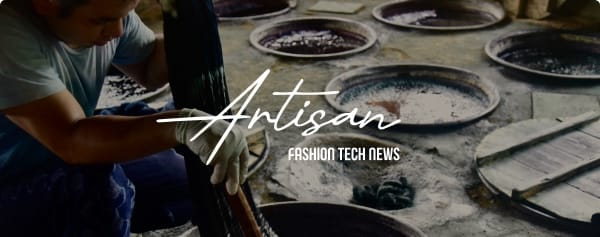







![[Not Yet in Japan] Oslo-Based Bag Brand Cala Jade on the Beauty of Leather Nurtured Over Time](https://images.microcms-assets.io/assets/1775a3633c8b428d9f011c6a758a8a5c/e2407d5c55644cffa6bf35119686d87d/cj-aw25-first-batch-edit-13.jpg?w=400&fm=webp)








.png?w=400&fm=webp)


